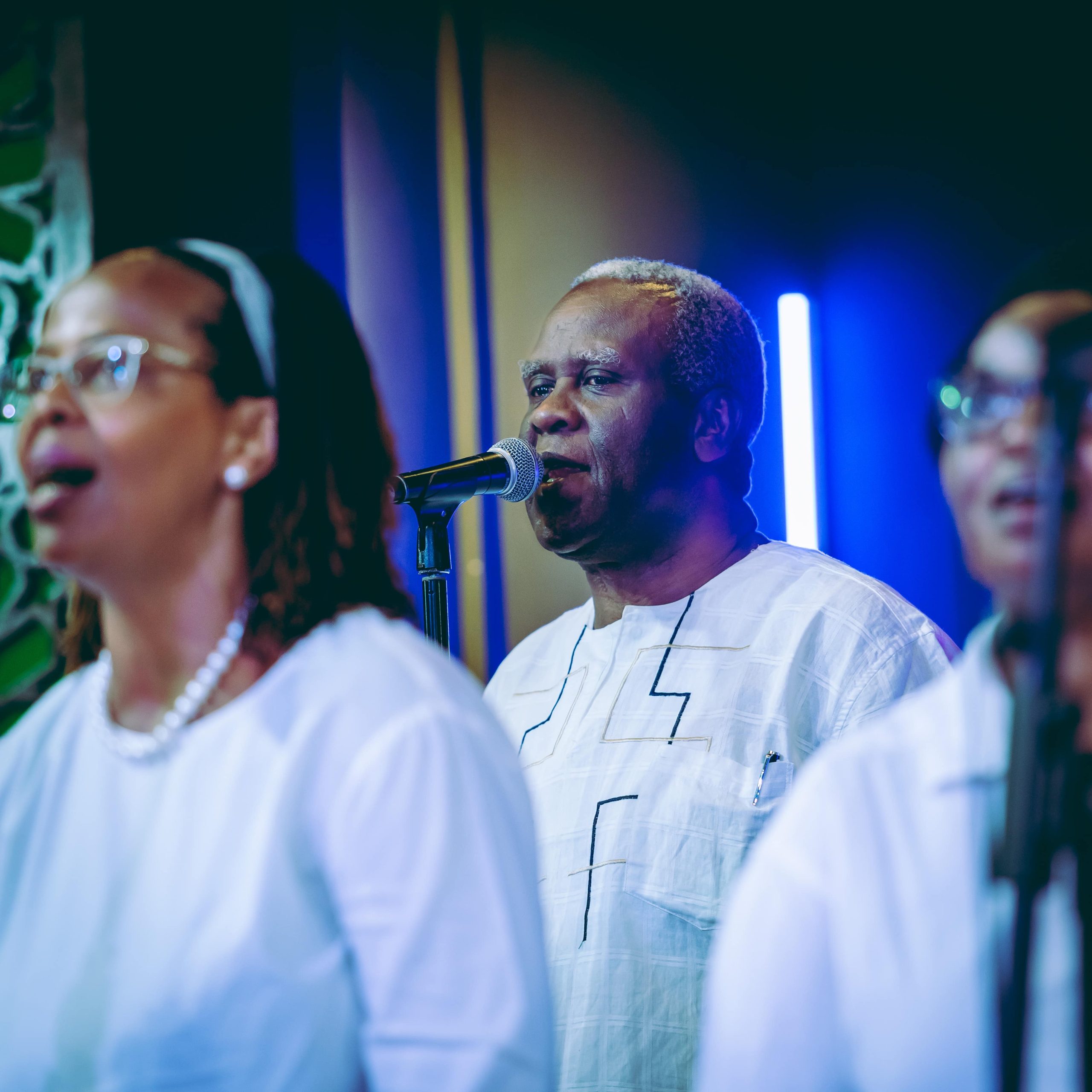
Psalm 133 (NIV)
A song of ascents. Of David.
1 How good and pleasant it is when brothers live together in unity!
2 It is like precious oil poured on the head,
running down on the beard, running down on Aaron’s beard,
down upon the collar of his robe.
3 It is as if the dew of Hermon were falling on Mount Zion.
For there the Lord bestows his blessing, even life forevermore.
The words of David here are of jubilant rejoice! Rejoice at the thought and reality of a united people under God. He describes with vivid imagery a beauty that corresponds to that of the anointing of Aaron with oil as all of Israel was gathered in Lev 8:12. A beauty of oil flowing down from Aaron’s head to his beards and down to his priestly garments spreading the fragrance, the anointing, the gladness, and the blessing of the oil all over his body even to his garments. Coupled with this image is the dew of Mt. Hermon wetting the whole land of Israel to as far as Mt. Zion bringing refreshing to all; plant, animal and mankind alike.
Similarly amazing is the Unity of believers under God with Christ as the head and his church as the body. In this unity, his blessings flow to all, refreshing all, anointing all, bringing joy and gladness to all, even life eternal to all. Paul reiterates this same idea in his letter to the Corinthian Church exalting them to pursue unity since we were all baptized by one Spirit, and into one Body, the Church, under one Lord even Christ.
1 Corinthians 12:12-27 (NIV)
12 Just as a body, though one, has many parts, but all its many parts form one body, so it is with Christ.13 For we were all baptized by[a] one Spirit so as to form one body—whether Jews or Gentiles, slave or free—and we were all given the one Spirit to drink.14 Even so the body is not made up of one part but of many.
15 Now if the foot should say, “Because I am not a hand, I do not belong to the body,” it would not for that reason stop being part of the body.16 And if the ear should say, “Because I am not an eye, I do not belong to the body,” it would not for that reason stop being part of the body.17 If the whole body were an eye, where would the sense of hearing be? If the whole body were an ear, where would the sense of smell be?18 But in fact God has placed the parts in the body, every one of them, just as he wanted them to be.19 If they were all one part, where would the body be?20 As it is, there are many parts, but one body.
21 The eye cannot say to the hand, “I don’t need you!” And the head cannot say to the feet, “I don’t need you!”22 On the contrary, those parts of the body that seem to be weaker are indispensable,23 and the parts that we think are less honorable we treat with special honor. And the parts that are unpresentable are treated with special modesty,24 while our presentable parts need no special treatment. But God has put the body together, giving greater honor to the parts that lacked it,25 so that there should be no division in the body, but that its parts should have equal concern for each other.26 If one part suffers, every part suffers with it; if one part is honored, every part rejoices with it.
27 Now you are the body of Christ, and each one of you is a part of it.
Paul’s case is for the Corinthian Church to stop dissensions of all kinds and pursue unity since they are members of the same body, the Church. He goes to great lengths using the example of literal body parts and their codependence on each other, to show how the body of Christ the church similarly must pursue unity and hate discord. He begins by explaining that Christ has formed the body intentionally to comprise the different members and is not complete if the members were all homogeneous.
For these reason every part of the body must serve the other as equipped by God, and not seek to destroy the other part(s) or separate itself from the union with the other parts of the body. In the same breath if one of the parts of the body should suffer shame or pain, the rest of the body suffers along with it, and if one part is honoured, then likewise should the other parts rejoice with it. Indeed how beautiful it is when the body lives in such Unity!
Unfortunately there lies a great threat to unity in the body known as slander. The spread of words about another with an intent to malign or discredit one’s character reputation or name. Slander among believers is a sin because it sows seed of discord, (Prov. 6:19) and destroys the unity of the body of Christ. The body that he bought with his own blood. When Aaron and Miriam spoke against Moses (Num12:1), God’s anger burned against them and he punished Miriam with leprosy, as a show of how offensive slander is to God.
God expects us to love and care for each other as believers, watching out for each other’s needs and even placing those needs above our own (Phil 2:4). Moreover, Christ’s command to the disciples was to love one another as the ultimate testimony that they were truly his disciples (John 13:34). To slander therefore is to disobey God, to ruin the witness of Christ and to tear apart the body of Christ that he worked so hard to unite in his body, through death on the cross.



